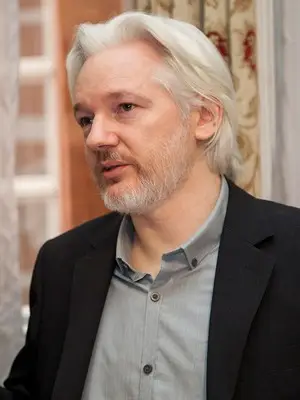Table of Contents
- The Historical Context of WikiLeaks
- The Legal and Political Battle
- State Power and Control
- The Role of the Media
- Freedom of the Press
- International Relations and Legal Sovereignty
- Human Rights and Detention Conditions
- The Problematic Nature of Julian Assange’s Plea Deal
- Sociological Implications of Julian Assange’s Case
- The Future of Whistleblowing and Journalism
- Conclusion
- Poll
- Think!
- Essay Suggestions
- Research Suggestions
- Further Reading
Julian Assange, the founder of WikiLeaks, has been a polarizing figure in global politics and media for over a decade. His release from the UK prison system after agreeing to a plea deal with the United States has reignited debates on state power and press freedom. This article explores these themes through a sociological lens, examining how Assange’s case impacts our understanding of government transparency, the role of the media, and the balance between national security and individual rights.
The Historical Context of WikiLeaks
WikiLeaks, founded by Julian Assange in 2006, became a pivotal platform for leaking classified information that exposed governmental and corporate misconduct. The release of the “Collateral Murder” video in 2010, showing a U.S. military helicopter attack in Iraq, marked a significant moment in the organization’s history. This footage, along with subsequent releases of diplomatic cables and military documents, positioned WikiLeaks as a champion of transparency and accountability. However, it also placed Assange in the crosshairs of powerful state actors who viewed his actions as a threat to national security.
The Legal and Political Battle
Assange’s legal troubles began in earnest when he sought asylum in the Ecuadorian Embassy in London in 2012, evading extradition to Sweden over allegations of sexual misconduct. His asylum, while politically charged, underscored the international dimensions of his case. The subsequent revocation of his asylum in 2019 and his arrest by UK authorities set the stage for a prolonged legal battle over his extradition to the United States. This legal saga highlights the complex interplay between national legal systems, international law, and political pressure, raising questions about the fairness and motivations behind his prosecution.
State Power and Control
The case of Julian Assange exemplifies how states exercise power and control over individuals who challenge their authority. Governments have historically used legal mechanisms to suppress dissent and control information. In Assange’s case, the charges under the Espionage Act and conspiracy to commit computer intrusion reflect a broader strategy to deter whistleblowers and investigative journalists. The use of such charges suggests a chilling effect on press freedom, as it signals the potential consequences for those who expose state secrets, even when such disclosures reveal unethical or illegal activities.
The Role of the Media
The media plays a critical role in shaping public opinion and holding power to account. Assange’s work with WikiLeaks blurred the lines between journalism and activism, raising important questions about the responsibilities and protections afforded to those who disseminate information in the public interest. Traditional media outlets often collaborated with WikiLeaks to publish leaked documents, demonstrating the symbiotic relationship between new media platforms and established journalistic institutions. However, the divergent reactions to Assange’s actions also reveal the media’s susceptibility to political influence and the varying degrees of commitment to press freedom.
Freedom of the Press
Press freedom is a cornerstone of democratic societies, enabling journalists to investigate and report without fear of retribution. Assange’s prosecution, particularly under laws designed to protect national security, challenges this principle. The potential extradition of Assange to the United States raised significant concerns about the precedent it would set for journalists worldwide. If the dissemination of classified information that exposes government wrongdoing can be criminalized, it undermines the press’s ability to fulfill its watchdog role. This tension between security and freedom reflects broader societal debates about the limits of transparency and the rights of the press.
International Relations and Legal Sovereignty
Get the full article AD FREE. Join now for full access to all premium articles.
View Plans & Subscribe Already a member? Log in.





